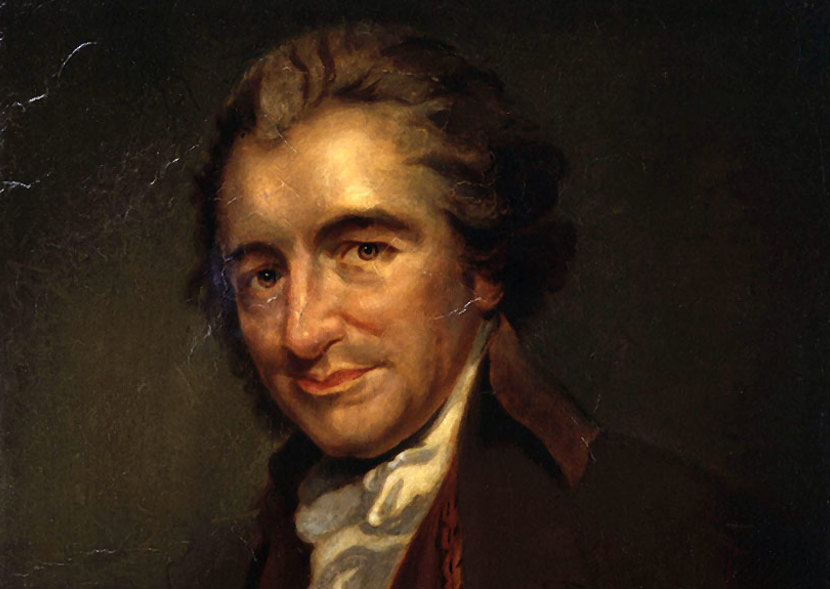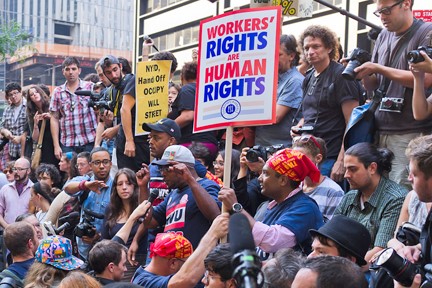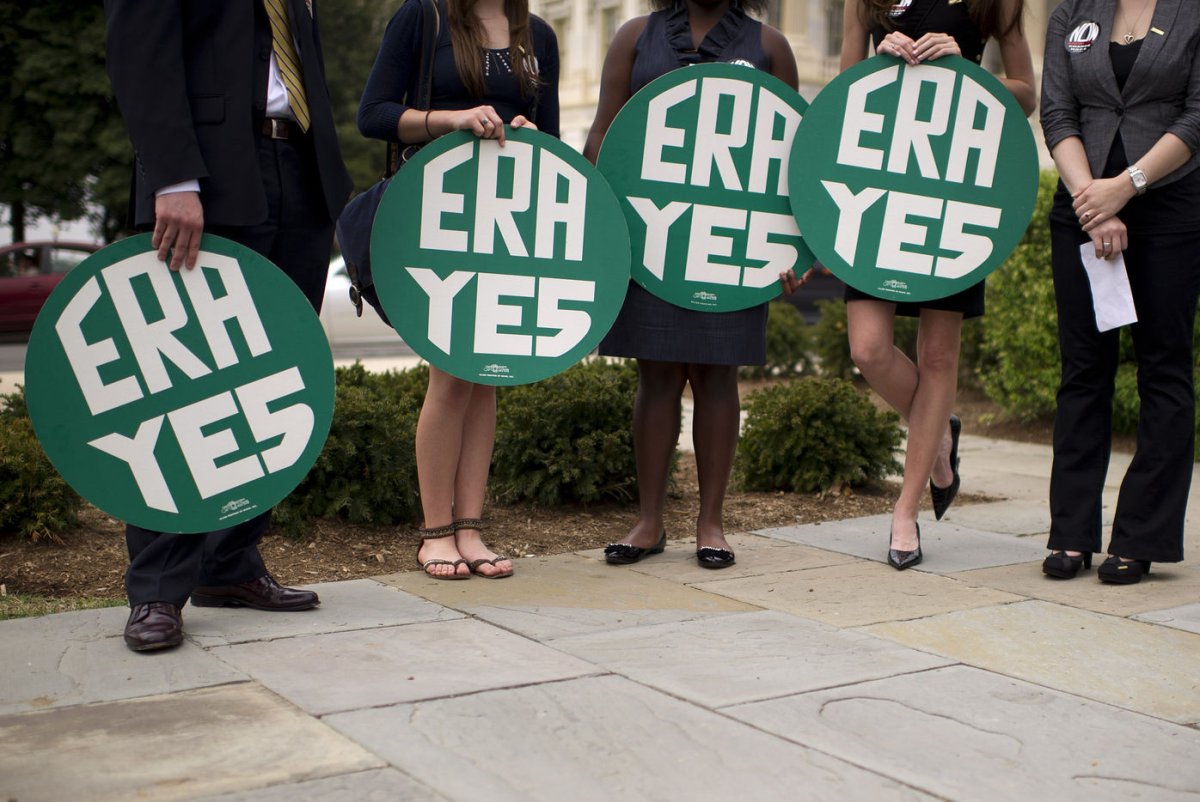In America it is common to study, discuss, and appeal to the political, philosophical, and military leaders that conceived of and fought for a republic independent from Great Britain.
Their names are widely known George Washington, Thomas Jefferson, Benjamin Franklin, James Madison, and more. In recent years the public has become increasingly conscious of the immense contradictions between the ideology and action of our “founding fathers,” but there is a name unknown to or underappreciated by many who deserves to be hailed above all other founders, not just for his national and international contributions, but also for his exceptional lack of contradiction and prejudice in comparison with his 18th century peers.
You may have heard about Thomas Paine in your middle or high school American history classes; he was the guy who wrote “Common Sense.” While it convinced many political elites and common folk alike that the cause of the brewing revolution should be of independence and freedom, this fiery and influential pamphlet is not even close to his only contribution to the United States of America or the world.
Born in Thetford, England in 1737, Paine’s first venture into writing was his 1772 pamphlet “The Case of the Officers of Excise” wherein he writes to parliament in support of increasing the pay of tax-collectors in order to curb the common practice of excisemen, stealing from the sum of money they collected.
At the time it came to nothing, but it can now be seen as the first attempt to organize government workers on a national scale to improve their pay. In 1774, Paine came to America and in January of 1776, he published his most well-known work- “Common Sense.” In “Common Sense” Paine denounces not only the actions of Great Britain and King George III, but the concept of monarchy existing in any nation.
Paine says of monarchs: “Men who look on themselves born to reign, and others born to obey soon grow insolent; selected from the rest of mankind their minds are early poisoned with importance.”
He even goes so far in his censure of monarchy to say that “of more worth is one honest man to society, and in the sight of God, than all crowned ruffians that ever lived.”
The American Revolution commences as Paine boldly proclaims at the beginning of chapter three of “Common Sense” that “the period of debate is closed. Arms, as the last resource, decide the contest; the appeal was the choice of the king, and the continent hath accepted the challenge.”
While this may be where teachers forget about Paine as a character in world history, this is only the start of his work. Paine was an advocate for the equal rights of all men, and more privately a proponent of a more equalized status for women. Paine was one of America’s first abolitionists as well as a good friend, and part time member, to the founders of America’s first anti-slavery organization: The Society for the Relief of Free Negroes Unlawfully Held in Bondage.
Paine believed so much in the cause of abolition that during his service in the National Assembly he voted against the establishment of the 1795 constitution for France, in part due to it lacking a clause to abolish slavery and rejected the idea of property qualifications to vote in his advocacy for universal suffrage.
The late Dr. Raymond Polin, Professor Emeritus of Government and Politics at St. John’s University said, “Had Paine and [George] Mason had their way, ‘persons of color’ would have been included, slavery would have ended with feudal distinctions, and there would have been no Civil War; and Paine at least would also have included women as endowed with equal rights.”
For this attitude and his later objections to the execution of King Louis XVI, Paine landed himself in a French prison on death row from which he was only saved after a regime change and the work of then Minister to France and later President James Monroe.
In contrast, Jefferson, Washington, Madison, and even Franklin all owned slaves. Our nation had not even attained universal male suffrage until after the civil war over 150 years after Thomas Paine and other radicals had already passionately advocated for such reforms.
This is not the only way in which Paine was ahead of his time. He also advocated for the rights of animals, free public education, a system of international arbitration, an international republic of nations, universal basic income, progressive land tax, the purchase of the Louisiana Territory, disuse of the death penalty, and a stronger constitution, among other things.
Some of these he lived to see, such as the Louisiana Purchase and the establishment of a stronger federal government, which came almost a decade after he had originally called for it.
Others only came in the decades and centuries following his death, such as free public education, which was not established until 1821, 12 years after his death. His international republic of nations, which we recognize today as the United Nations, was established in 1945 with an International Court of Justice to act as a body of arbitration between nations, 136 years after Paine’s’ death.
Other ideas remain radical today. In the modern era people continue to advocate for universal basic income, the abolition of the death penalty, and the equal dignity of non-human animals.
In Paine’s own time his reputation was in constant flux. For his championship for liberty in “The Rights of Man”- a defense of the French Revolution’s driving principles, human rights, and democracy -and reporting in the multiple issues of “The American Crisis”– a series of 12 pamphlets used to report to the people the state of the war from the front lines and to defend the principles of the cause -he was praised and loved. Napoleon Bonepart said he slept with a copy of “The Rights of Man” under his pillow and that a golden statue of Paine ought to be erected in every city in the universe.
Towards the end of his life Paine’s reputation was abysmal after the publication of “The Age of Reason” in which he asserted that Christianity, and all other organized religions, were false and harmful to humanity. He was instead a deist- someone who believes in a higher power that does not intervene in the world.
His book was one of the first to present the intellectual movement of Deism popular among the elite to the common man and holds the special status of being one of the only deistic treatises to still be influential among readers today. For this he was hated by the overwhelmingly religious America and called a heretic, atheist, and blasphemer. He wrote the second part of the book during his imprisonment and upon returning to America in 1802, Paine found less allies in the nation than when he had departed in 1787.
For Thomas Paine’s lifelong work as a writer and advocate for liberty, justice, and equality for all in a brotherhood of man and status as a friend to the oppressed, impoverished, and the world, he is more than deserving of the title of America’s Greatest Founding Father.
There are rarely in world history individuals of Paine’s kind. Individuals who are so forward thinking, compassionate, and genius; individuals who rile the emotions like a Romantic with the language of a Rationalist.
Activists like Paine who use their voice even under threat of imprisonment, death, and severe backlash are the unsung heroes to mankind and purest champions of liberty.
The readership of this article is challenged to engage with the ideas and work of this radical revolutionary. The legacy of Paine is the legacy of our nation’s revolutionary declaration that all men are created equal and are of equal dignity. The history of Paine is the history of modern democracy, and the rhetoric of Paine is the rhetoric in the hearts of every modern proponent of liberty, justice, and equality. For this, and the above details, the preservation of Paine’s memory and education on Paine’s ideas is of paramount importance.












